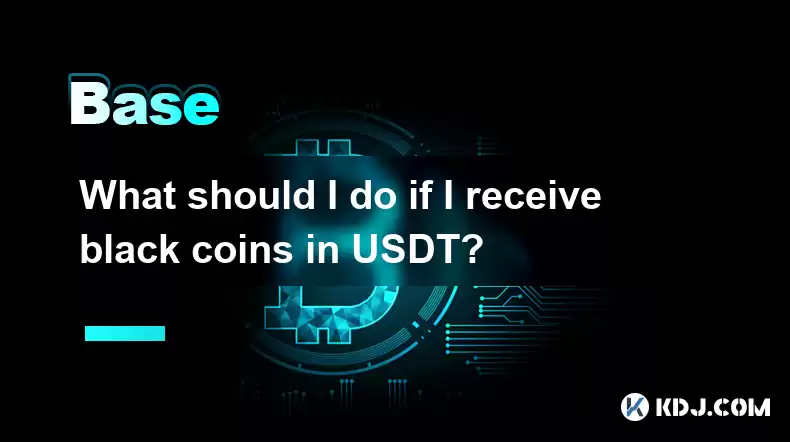-
 Bitcoin
Bitcoin $114200
0.00% -
 Ethereum
Ethereum $3637
0.56% -
 XRP
XRP $2.950
-2.01% -
 Tether USDt
Tether USDt $0.9999
0.02% -
 BNB
BNB $761.0
0.55% -
 Solana
Solana $164.1
-1.38% -
 USDC
USDC $0.9999
0.02% -
 TRON
TRON $0.3332
0.36% -
 Dogecoin
Dogecoin $0.2012
-0.52% -
 Cardano
Cardano $0.7261
-1.41% -
 Hyperliquid
Hyperliquid $37.62
-2.13% -
 Stellar
Stellar $0.3930
-2.65% -
 Sui
Sui $3.441
-0.16% -
 Bitcoin Cash
Bitcoin Cash $563.8
0.70% -
 Chainlink
Chainlink $16.50
0.09% -
 Hedera
Hedera $0.2424
-0.14% -
 Ethena USDe
Ethena USDe $1.001
0.01% -
 Avalanche
Avalanche $22.20
0.00% -
 Litecoin
Litecoin $118.0
-2.48% -
 UNUS SED LEO
UNUS SED LEO $8.991
0.12% -
 Toncoin
Toncoin $3.195
-3.87% -
 Shiba Inu
Shiba Inu $0.00001217
0.12% -
 Uniswap
Uniswap $9.674
-0.21% -
 Polkadot
Polkadot $3.633
1.00% -
 Monero
Monero $295.3
-0.82% -
 Dai
Dai $0.9999
0.00% -
 Bitget Token
Bitget Token $4.321
-0.41% -
 Cronos
Cronos $0.1392
0.73% -
 Pepe
Pepe $0.00001027
-0.89% -
 Aave
Aave $258.5
0.32%
What should I do if I receive black coins in USDT?
Receiving black coins poses significant risks and can result in frozen exchange accounts, lost funds, and legal liability. It is crucial to contact the exchange, freeze your account, and report the incident to law enforcement to mitigate these risks and protect yourself.
Jan 23, 2025 at 09:48 pm

Key Points:
- Definition of black coins (USDT)
- Potential sources of receiving black coins
- Risks associated with holding black coins
- Steps to take when receiving black coins
- Prevention measures to avoid receiving black coins
- FAQs related to black coins
What are Black Coins (USDT)?
Black coins are USDT tokens that have been flagged or blacklisted by cryptocurrency exchanges or regulating authorities due to illicit activities associated with them. These activities may include money laundering, fraud, or terrorist financing. Black coins are typically identified and frozen by exchanges when suspicious transactions or account activity is detected.
Potential Sources of Black Coins
- Purchasing USDT from unregulated or unlicensed platforms
- Receiving USDT from unknown or suspicious individuals
- Participating in fraudulent or illegal activities involving cryptocurrencies
Risks Associated with Holding Black Coins
- Exchange accounts may be frozen or restricted
- Loss of access to funds
- Legal liability for involvement in illicit activities
- Negative impact on reputation
Steps to Take When Receiving Black Coins
- Contact the Sender: Reach out to the person or entity that sent you the black coins and inquire about the source of the funds. Explain that the coins are blacklisted and cannot be transacted.
- Report to the Exchange: Immediately inform the cryptocurrency exchange where you received the black coins. Provide details about the transaction, including the sender's address and amount received.
- Freeze Your Exchange Account: Temporarily suspend your exchange account to prevent any withdrawals or transfers of the black coins. This will help protect your funds from potential theft or seizure.
- Contact Law Enforcement: In cases involving significant amounts of black coins or suspected illegal activity, consider reporting the incident to law enforcement agencies.
Prevention Measures to Avoid Receiving Black Coins
- Use reputable and licensed cryptocurrency exchanges
- Verify the identities of individuals before sending or receiving USDT
- Avoid participating in suspicious transactions or investing in untrustworthy projects
- Monitor your transaction history regularly for any irregularities
FAQs Related to Black Coins
Q: What happens if I accidentally receive black coins?
A: Report the incident to the exchange and freeze your account to prevent any further transactions. Contact the sender for clarification and consider reporting it to law enforcement if suspicious activity is suspected.
Q: Can black coins be used for transactions?
A: Black coins are typically frozen or locked by exchanges and cannot be transferred or transacted through legitimate platforms.
Q: Is it illegal to hold black coins?
A: It is not illegal to passively hold black coins, but any attempt to transact or use them could result in legal consequences.
Q: How can I prevent receiving black coins?
A: Use reputable exchanges, verify identities before transactions, and avoid suspicious activities and investments.
Q: What should I do if I suspect someone is sending me black coins?
A: Contact the individual, report it to the exchange, and freeze your account for protection. Consider reaching out to law enforcement if illegal activities are suspected.
Disclaimer:info@kdj.com
The information provided is not trading advice. kdj.com does not assume any responsibility for any investments made based on the information provided in this article. Cryptocurrencies are highly volatile and it is highly recommended that you invest with caution after thorough research!
If you believe that the content used on this website infringes your copyright, please contact us immediately (info@kdj.com) and we will delete it promptly.
- Binance, CZ, and the FTX Fallout: The $1.8 Billion Question
- 2025-08-06 18:30:12
- Brendan Rodgers, Celtic, and the Greg Taylor Role: A Tactical Conundrum
- 2025-08-06 18:50:12
- Coinbase Stock, Investment, and Earnings: Navigating Crypto's Tides
- 2025-08-06 18:55:54
- DALPY Coin: Investor Buzz Swirls Around Upcoming 'Game-Changing' Features
- 2025-08-06 18:30:12
- BlockchainFX: Your Ticket to 1000x Crypto Gains in '25?
- 2025-08-06 19:30:12
- Dogecoin Price, Technical Indicators, and Trader Sentiment: A NYC Perspective
- 2025-08-06 19:35:12
Related knowledge

What is the difference between CeFi and DeFi?
Jul 22,2025 at 12:28am
Understanding CeFi and DeFiIn the world of cryptocurrency, CeFi (Centralized Finance) and DeFi (Decentralized Finance) represent two distinct financia...

How to qualify for potential crypto airdrops?
Jul 23,2025 at 06:49am
Understanding What Crypto Airdrops AreCrypto airdrops refer to the distribution of free tokens or coins to a large number of wallet addresses, often u...

What is a crypto "airdrop farmer"?
Jul 24,2025 at 10:22pm
Understanding the Role of a Crypto 'Airdrop Farmer'A crypto 'airdrop farmer' refers to an individual who actively participates in cryptocurrency airdr...

What is the difference between a sidechain and a Layer 2?
Jul 20,2025 at 11:35pm
Understanding the Concept of SidechainsA sidechain is a separate blockchain that runs parallel to the main blockchain, typically the mainnet of a cryp...

What is the Inter-Blockchain Communication Protocol (IBC)?
Jul 19,2025 at 10:43am
Understanding the Inter-Blockchain Communication Protocol (IBC)The Inter-Blockchain Communication Protocol (IBC) is a cross-chain communication protoc...

How does sharding improve scalability?
Jul 20,2025 at 01:21am
Understanding Sharding in BlockchainSharding is a database partitioning technique that is increasingly being adopted in blockchain technology to enhan...

What is the difference between CeFi and DeFi?
Jul 22,2025 at 12:28am
Understanding CeFi and DeFiIn the world of cryptocurrency, CeFi (Centralized Finance) and DeFi (Decentralized Finance) represent two distinct financia...

How to qualify for potential crypto airdrops?
Jul 23,2025 at 06:49am
Understanding What Crypto Airdrops AreCrypto airdrops refer to the distribution of free tokens or coins to a large number of wallet addresses, often u...

What is a crypto "airdrop farmer"?
Jul 24,2025 at 10:22pm
Understanding the Role of a Crypto 'Airdrop Farmer'A crypto 'airdrop farmer' refers to an individual who actively participates in cryptocurrency airdr...

What is the difference between a sidechain and a Layer 2?
Jul 20,2025 at 11:35pm
Understanding the Concept of SidechainsA sidechain is a separate blockchain that runs parallel to the main blockchain, typically the mainnet of a cryp...

What is the Inter-Blockchain Communication Protocol (IBC)?
Jul 19,2025 at 10:43am
Understanding the Inter-Blockchain Communication Protocol (IBC)The Inter-Blockchain Communication Protocol (IBC) is a cross-chain communication protoc...

How does sharding improve scalability?
Jul 20,2025 at 01:21am
Understanding Sharding in BlockchainSharding is a database partitioning technique that is increasingly being adopted in blockchain technology to enhan...
See all articles

























































































